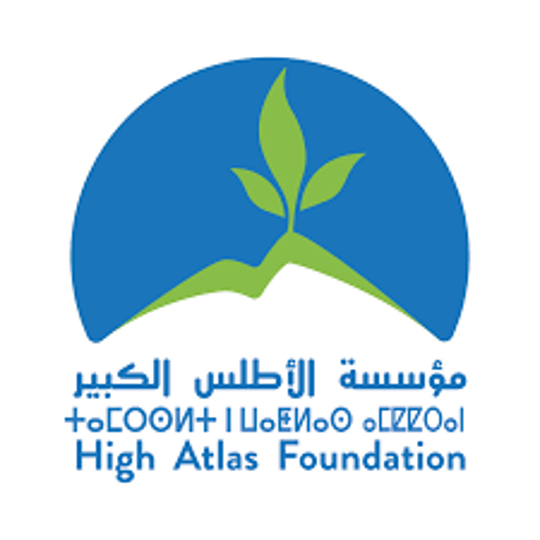PARTICIPATORY DEVELOPMENT IN MOHAMMEDIA PROVINCE: ONE SIZE DOESN’T FIT ALL!

 In my first week interning with the Center for Community Consensus-Building and Sustainable Development (a partnership of University Hassan II and the High Atlas Foundation), we had a meeting with a civil society organisations (CSOs) in the rural commune of SidiMoussa Ben Ali. In the second week, we had a meeting with representatives from a number of CSOs in the urban commune of AinHarrouda. Both meetings were in the Mohammedia region; both meetings were introductory; and thus both meetings had the same aims: to introduce the purpose of the Center and the operational objectives of the HAF. So they would have been conducted in the same way, right? Wrong!
In my first week interning with the Center for Community Consensus-Building and Sustainable Development (a partnership of University Hassan II and the High Atlas Foundation), we had a meeting with a civil society organisations (CSOs) in the rural commune of SidiMoussa Ben Ali. In the second week, we had a meeting with representatives from a number of CSOs in the urban commune of AinHarrouda. Both meetings were in the Mohammedia region; both meetings were introductory; and thus both meetings had the same aims: to introduce the purpose of the Center and the operational objectives of the HAF. So they would have been conducted in the same way, right? Wrong!
A criticism of many development initiatives that I have come across during my two years as an International Development student has been that they are guilty of assuming that ‘one-size fits all’; they disregard the variations in every region, community, and individual. In my second week as an intern with the Center, I learnt that the participatory approach to development prevents any such generalisations from being made. A comparison of the two meetings illustrates this:
The setting of the meeting:
SidiMoussa Ben Ali: the house of one of the association members in the rural commune
AinHarrouda: a youth center in the urban commune
The day and time of the meeting:
SidiMoussa Ben Ali: Wednesday, 3.45pm (supposed to start at 4pm)
AinHarrouda: Saturday, 4.30pm (supposed to start at 4pm)

My expectation of attendees:
SidiMoussa Ben Ali: more men than women
AinHarrouda: equal representation of men and women
Actual breakdown of attendees:
SidiMoussa Ben Ali: 7 people = 2 men and 5 women
AinHarrouda: 23people = 22 men and 1 woman
The format of the meeting:
SidiMoussa Ben Ali: informal; all points on agenda were covered, although not in order, and refreshments served throughout
AinHarrouda: formal; stuck to the agenda and there was a set break-time for refreshments
The delivery of the meeting:
SidiMoussa Ben Ali: association members described their communes strengths and weaknesses, the role of the Center was discussed, association members requested specific training from the Center to assist them in the actualization of their project, evaluation forms filled in after being provided with an explanation of how to do so
AinHarrouda: a presentation of the work of the Center using a projector, attendees introduced themselves and the CSO they were representing, discussion of the problems of the commune, break, presentation of the potential training sessions that the attendees could benefit from, evaluation forms filled in
The context of the meeting:
SidiMoussa Ben Ali: examples of potential projects were specific; relating either to projects the association had already been involved with or projects they mentioned that they would be interested in: goat-herding and the production of cheese
AinHarrouda: examples of potential projects were general in order to relate to the diverse sectors that each of the CSOs specialized in; ranging from cultural activities to road safety
 Regardless of the differing format and delivery of both sessions, the aims of the introductory meeting were successfully fulfilled. This highlights how, unlike many other approaches to development, the HAF’s participatory approach takes a more holistic view of development; factoring in the uniqueness of every region, commune, culture and individual. Attendees left each meeting with knowledge not only of the work that the HAF conducts through the Center for Community Consensus-Building and Sustainable Development, but also of the way in which they as individuals, CSOs and the community as a whole would be able to benefit from combining their local knowledge and expertise with the technical knowledge available to them through the Center.
Regardless of the differing format and delivery of both sessions, the aims of the introductory meeting were successfully fulfilled. This highlights how, unlike many other approaches to development, the HAF’s participatory approach takes a more holistic view of development; factoring in the uniqueness of every region, commune, culture and individual. Attendees left each meeting with knowledge not only of the work that the HAF conducts through the Center for Community Consensus-Building and Sustainable Development, but also of the way in which they as individuals, CSOs and the community as a whole would be able to benefit from combining their local knowledge and expertise with the technical knowledge available to them through the Center.
Ultimately, it demonstrates the role of the HAF’s work as a facilitator: assisting communities to realize their own potential, for indeed for change to be accepted by the people it must come from them.
by Zaynab Osman, intern at the Center for Community Consensus-Building and Sustainable Development, Mohammedia